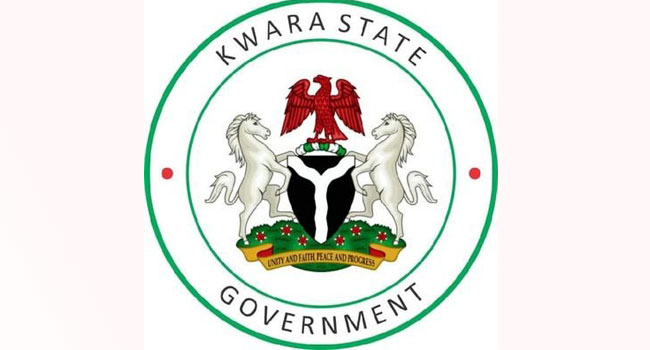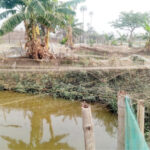The Kwara State government and catfish farmers in the state are trying to reach a common ground over the recent water crisis that threatened the industry in the state.
The government had raised the alarm over the activities of catfish farmers at the Asa Dam, warning that it may truncate water supply to citizens.
According to the former commissioner for water resources then, Wahab Femi Agbaje, the Asa Dam reservoir was not meant for fishing activities but solely for raw water impoundment.
Daily Trust on Sunday reports that at the core of the disagreement between the government and the catfish farmers is the issue of the discharge of the effluent into the river among other complaints.
- Why more Taraba women embrace poultry farming
- ‘Why C/River is allocating 12,000 hectares to smallholder farmers’
Agbaje further explained that the damage being done to the water infrastructure through the activities of fish farmers may soon truncate water supply to most parts of Ilorin metropolis if not curbed.
“Fishing activities and discharge of the effluent have been the order of the day over the past years. The effluent discharge has now reached a situation where our treatment plant cannot cope with it anymore. This requires a drastic measure to save the populace of Ilorin metropolis and surrounding settlements from erratic supply of water,” the commissioner had said.
The government’s position sparked serious concern among the fish farmers who warned of the potential damage such a decision could cause to the blooming catfish industry and provision of employment to many residents including its value chain.
However, more than two years down the line, the government and concerned fish farmers are yet to concretize discussion despite the decision to set up a committee to look into the matter with a view to reaching a truce.
It was gathered that the committee had come up with some recommendations to be followed with a government white paper.
Speaking on the issue, a fish farmer who does not want his name in print, told our correspondent that the government listed some measures to be observed towards the achievement of a truce on the matter.
According to him, “Then, we were directed to implement some measures like stopping the direct discharge of effluent into the river by first collecting it in a kind of tank that will act like a bio-filter first.
“But the period coincided with the time of election and we have politicians and traditional title holders among us. So, it later died down. It was later agreed that we should be levied an agreed amount because quitting us from the river bank entirely will lead to another problem completely.
“The government’s complaint had been that the amount expended in the filtering of the water has increased significantly because of our activities, so why not allow us to be paying a kind of levy. It was after that suggestion that we were registered and each fish farmer was charged around N10,000 per annum depending on the capacity. Some were even higher from the over 300 fish farmers,” he said.
On his part, the state vice chairman of the Association of Fish Farmers, Mr Tayo Olasupo, when contacted said he was “not aware of the government’s relocation plan, adding that nobody was asked to leave.
“What I am aware of is that there were some complaints at the water corporation and misunderstanding on how the fish farming is being executed along that corridor. However, there are so many people involved in what happens around Asa Dam river and fish farmers are just one of them.
“It was an observation raised and they were looking for a solution. After that, a committee was set up that sat just before the (last general) elections I think and the matter was resolved. But the white paper is not out yet.
“There was a truce for certain things to be put in place to reduce whatever materials that might have led to them raising complaints about pollution and the recommendation is already ongoing with all of them which include things that the fish farmers, the estate people and government are supposed to do on the matter.”
An official of the state water corporation who wants to be anonymous told Daily Trust on Sunday that “The issue has since died down after the lack of action from the government. What was reached then was that the farmers should look for means to be treating the effluent before discharging it into the lake. There was also a proposal that was submitted by one of the companies that showed interest in recycling the water.”
The commissioner for Water Resources, Yunusa Lade, denied that the matter had died down, adding that the government wants to arrive at a win-win situation for all the parties.
“We are still on it because a committee was set up last year to deliberate on that to arrive at a win-win situation. You know the fish farmers are actually adding value to the economy although they are impacting the water.
“After the committee’s assignment, they will come up with a recommendation one of which is that the ministry will clear the water hyacinths that are there now and engaged interested companies to make use of the hyacinth as manure for production so that it won’t be a waste. Also, we want to have a proper channelization for the farmers whereby water that is coming out from their pond will no longer go straight into the river but there will be an exit point that will collect the effluent while the water will go back into the river. It’s actually the effluent from the fish that is causing the hyacinth.
But asked how long the parties will sit on the table to cross the i’s and dot the t’s to finalise the discussion on the structurization and standardisation of the catfish industry in the state regarded as one of the biggest in the country, Lade said “Very soon”.

 Join Daily Trust WhatsApp Community For Quick Access To News and Happenings Around You.
Join Daily Trust WhatsApp Community For Quick Access To News and Happenings Around You.


